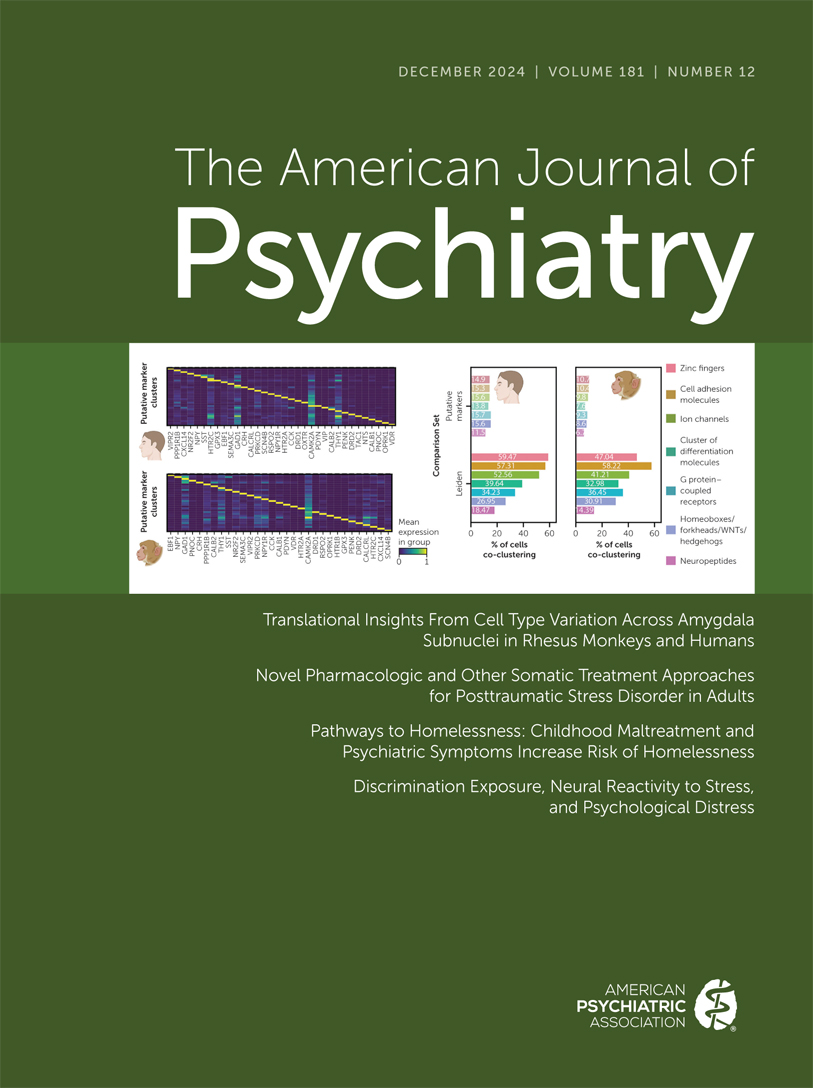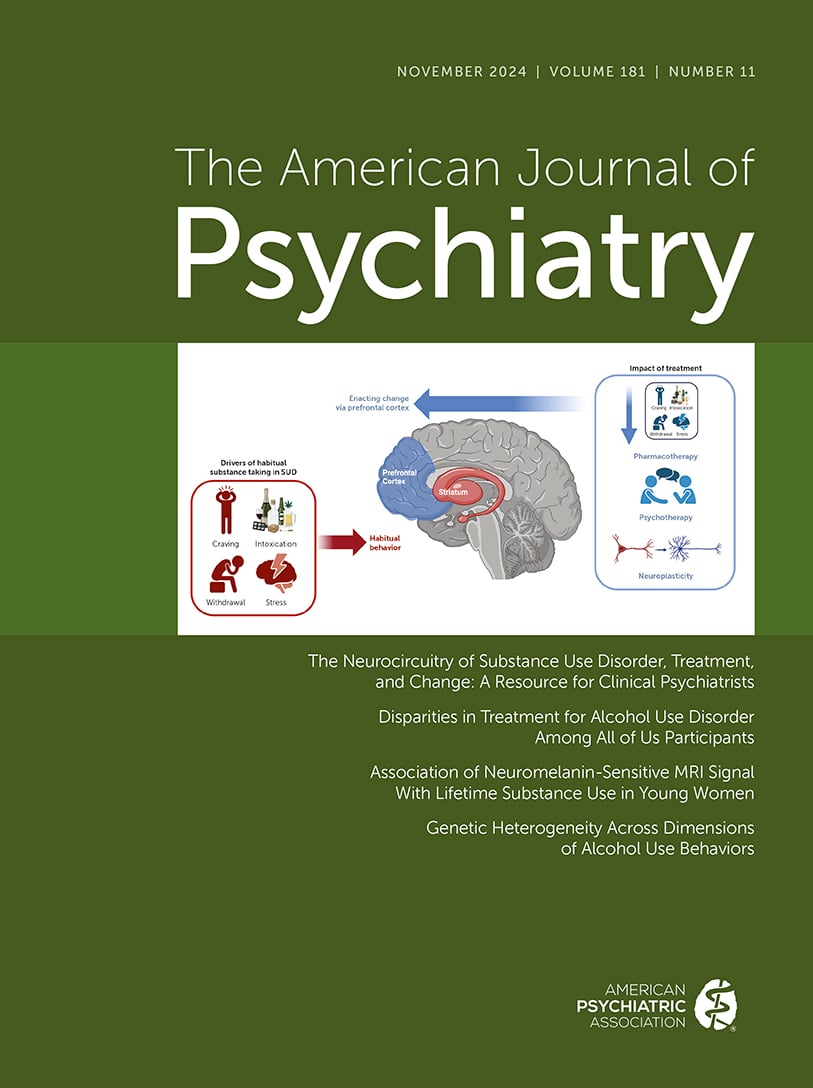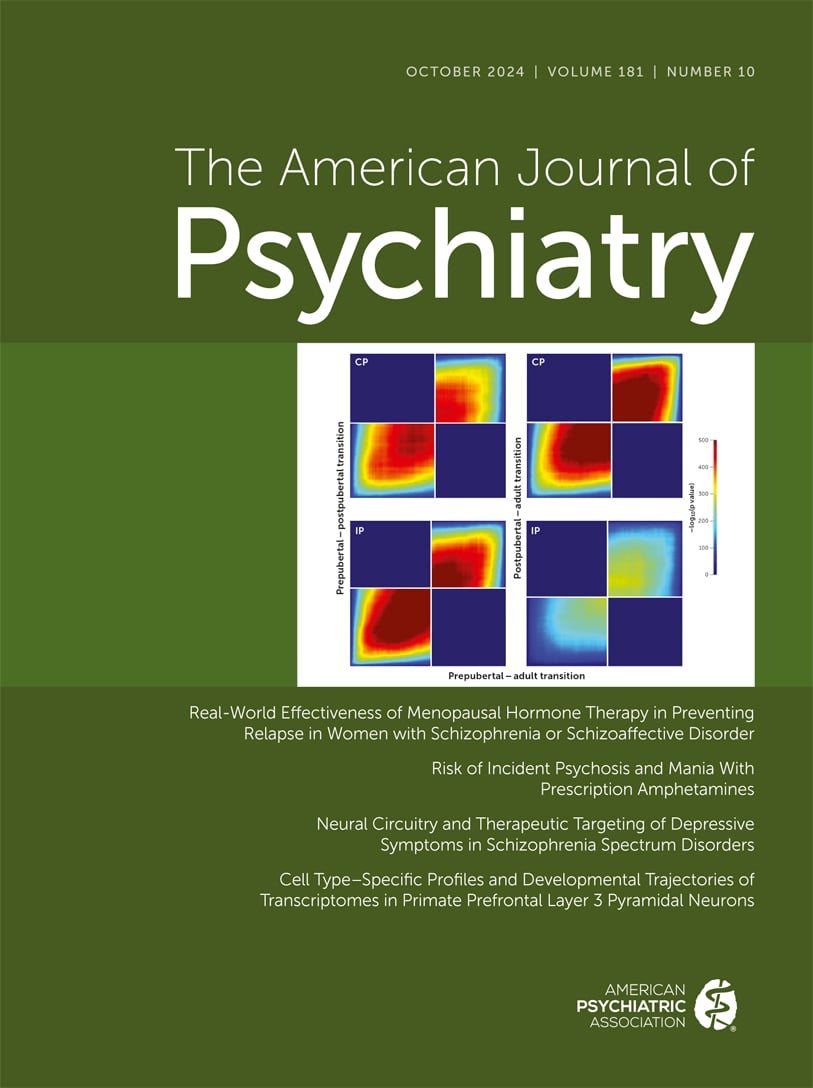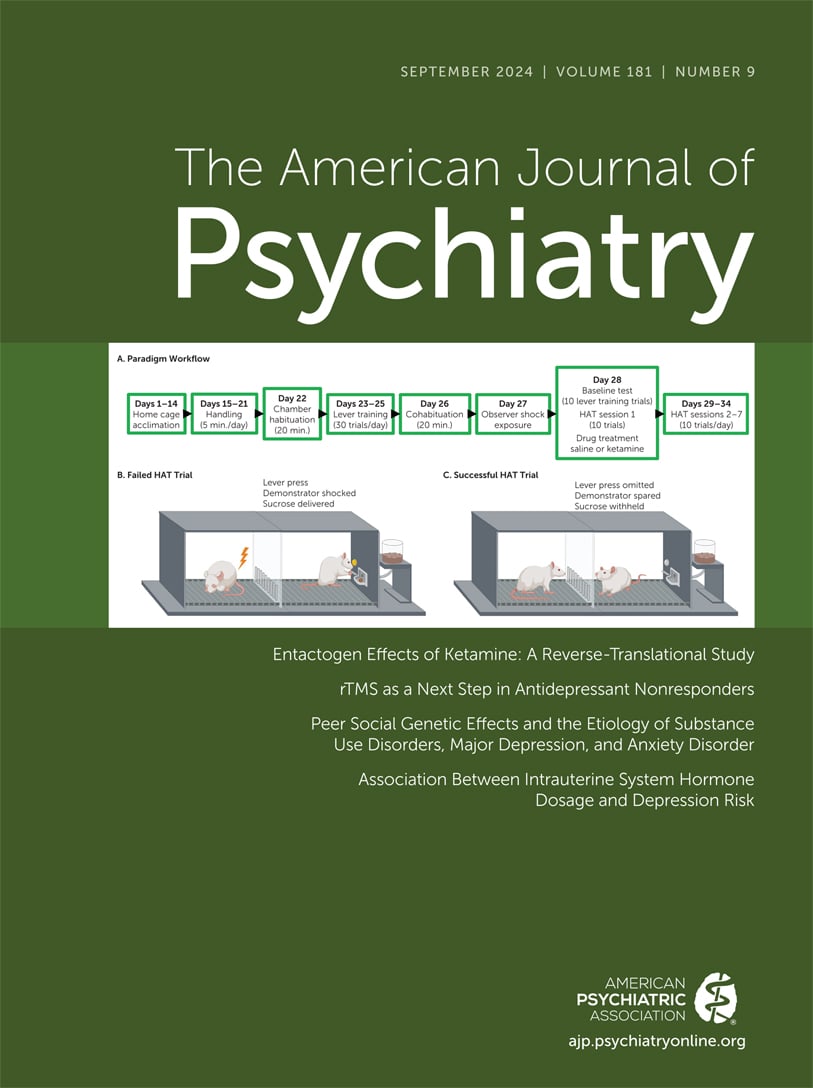American Journal of Psychiatry
- Volume 172
- Number 7
- July 2015
Perspectives
Editorials
Perspectives
Treatment in Psychiatry
Perspectives
Introspection
Perspectives
Images in Psychiatry
Perspectives
Reviews and Overviews
Publication date: 05 June 2015
Pages617–629Objective: How long clinicians should wait before considering an antipsychotic ineffective and changing treatment in schizophrenia is an unresolved clinical question. Guidelines differ substantially in this regard. The authors conducted a diagnostic test ...
https://doi.org/10.1176/appi.ajp.2015.14101329New Research
Articles
Publication date: 23 April 2015
Pages630–637Objective: The transmission of anxiety within families is well recognized, but the underlying processes are poorly understood. Twin studies of adolescent anxiety demonstrate both genetic and environmental influence, and multiple aspects of parenting are ...
https://doi.org/10.1176/appi.ajp.2015.14070818Publication date: 03 March 2015
Pages638–646Objective: The authors sought to identify diagnostic risk factors of manic, mixed, or hypomanic episodes in the offspring of parents with bipolar disorder (“high-risk offspring”). Method: High-risk offspring 6–18 years old (N=391) and demographically matched ...
https://doi.org/10.1176/appi.ajp.2014.14010035Publication date: 05 June 2015
Pages647–656Objective: The age-at-onset criterion for separation anxiety disorder was removed in DSM-5, making it timely to examine the epidemiology of separation anxiety disorder as a disorder with onsets spanning the life course, using cross-country data. Method: The ...
https://doi.org/10.1176/appi.ajp.2015.14091185Publication date: 23 April 2015
Pages657–664Objective: Little is known about genetic influences on juvenile irritability and whether such influences are developmentally stable and/or dynamic. This study examined the temporal pattern of genetic and environmental effects on irritability using data ...
https://doi.org/10.1176/appi.ajp.2015.14040509Publication date: 17 March 2015
Pages665–673Objective: Overactive performance monitoring, as measured by the error-related negativity in the event-related brain potential, represents one of the most robust psychophysiological alterations in obsessive-compulsive disorder (OCD). It has been proposed ...
https://doi.org/10.1176/appi.ajp.2014.14070886Publication date: 23 January 2015
Pages674–683Objective: Dysfunctional response inhibition is a key executive function impairment in attention deficit hyperactivity disorder (ADHD). Still, behavioral response inhibition measures do not consistently differentiate affected from unaffected individuals. ...
https://doi.org/10.1176/appi.ajp.2014.13121635Communications and Updates
Letters to the Editor
Communications and Updates
Book Forum
Communications and Updates
Books Received
Past Issues
View Issues Archive
Vol. 181 | No. 12

Vol. 181 | No. 11

Vol. 181 | No. 10
